Central America
Jailed Nicaraguan opposition figures face ill treatment, relatives say
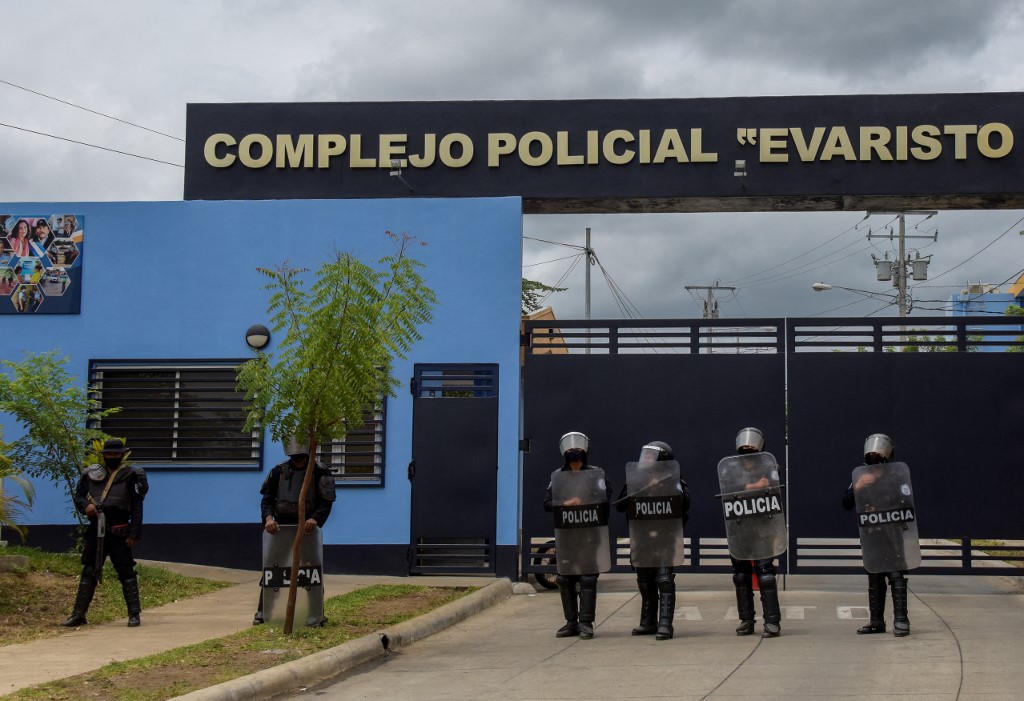
AFP
Relatives of more than 180 jailed opponents of Nicaraguan President Daniel Ortega’s government on Monday denounced the ill treatment they said had been inflicted on the detainees, while Catholic leaders complained of “repression” and harassment by authorities.
Five organizations representing relatives of imprisoned opposition figures launched an “urgent appeal” for their immediate release because of their “extreme physical and mental deterioration.”
The imprisoned opponents are victims of a “policy of ill-treatment (…) in order to exhaust, exterminate or mutilate” them, said a joint press release.
More than 40 opposition figures accused of “undermining national integrity” and money laundering were arrested in the months running up to last November’s presidential election.
Seven of them were Ortega’s rivals in the presidential election, and their detention gave him an easy return to power for a fourth consecutive term.
The election was slammed as a “pantomime” in Brussels and Washington.
Since February, at least 45 opponents of the government have been sentenced to terms of up to 13 years in prison on charges of plotting to overthrow Ortega with US backing.
Relatives of the prisoners have frequently criticized conditions inside the prisons that sap the detainees’ health to the point where they need emergency hospitalization.
In February, Hugo Torres, a hero of the Sandinista guerrilla movement who fought with Ortega against the dictatorship of the Somoza dynasty but later turned against his old comrade in arms, died in hospital custody.
The organizations of prisoners’ relatives expressed particular concern over the health of Nidia Barbosa, a 66-year-old activist who suffers from “serious heart problems” and who was hospitalized last week.
The relatives also voiced solidarity with Rolando Alvarez, the bishop of Matagalpa in the north, who has been holed up in his church since Thursday and who started a hunger strike to protest the police surveillance he says he’s been the target of since denouncing the repression of the opposition.
Harvy Padilla, a parish priest in the southern city of Masaya, said that police are also preventing him from leaving his church, and that on Sunday they banned his congregation from attending mass.
Central America
Castro to address FfD4 in Spain as Global Financial Reform takes center stage
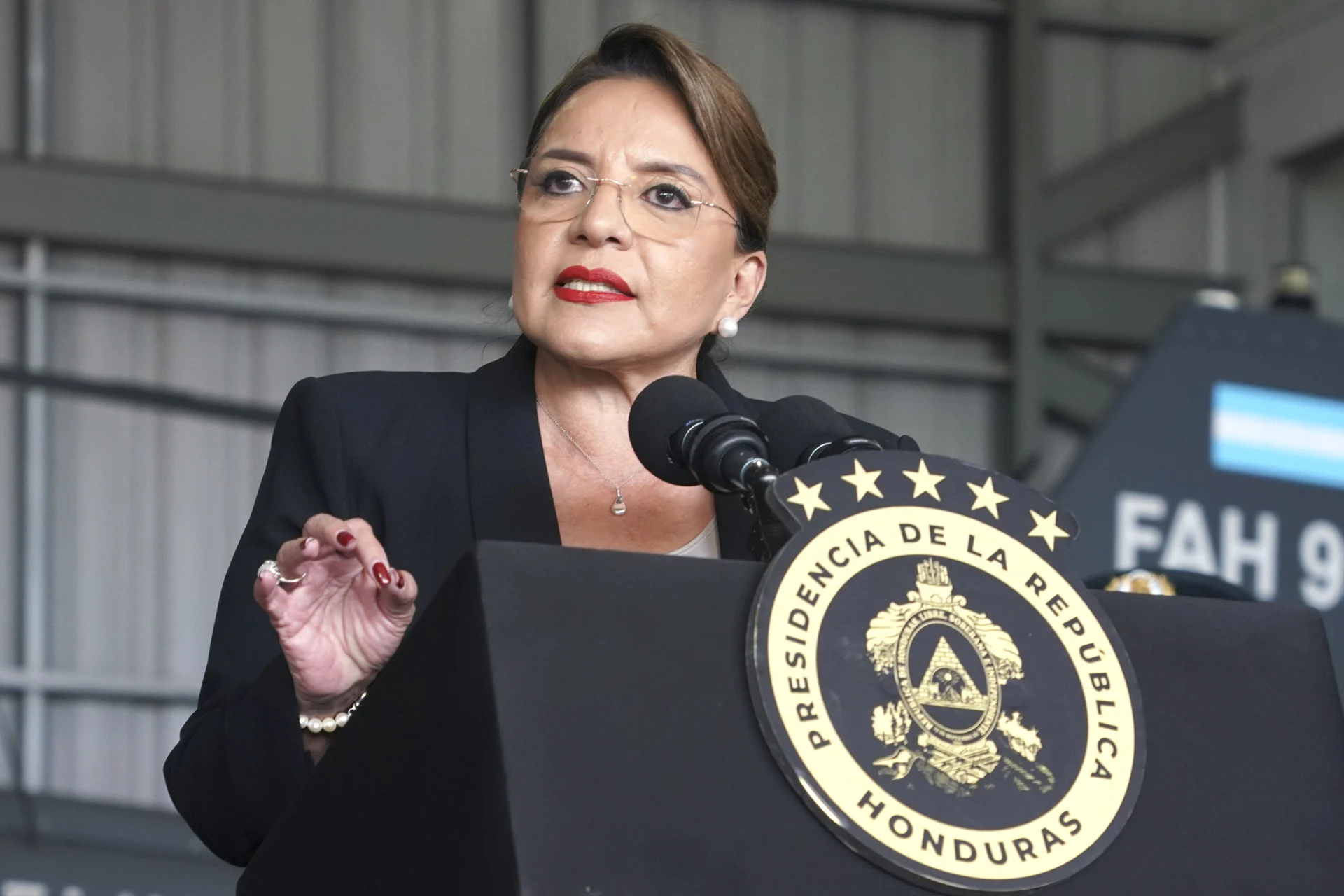
Honduran President Xiomara Castro will participate in the Fourth International Conference on Financing for Development (FfD4), to be held in Seville, Spain, from June 30 to July 3, Honduran Ambassador to Spain Marlon Brevé announced on Saturday.
The president is expected to arrive in Seville on Sunday and deliver her address on Monday, according to the diplomat.
Castro will be accompanied by Foreign Minister Javier Bu, her private secretary and son Héctor Zelaya, and Finance Minister Christian Duarte.
Spain is hosting the FfD4 conference at a critical time, as global development cooperation budgets face constraints while humanitarian needs continue to grow due to conflicts, political instability, and the climate crisis.
The conference will bring together world leaders, international organizations, private sector representatives, and civil society, aiming to review and reorient global development financing strategies.
Organized by the United Nations Department of Economic and Social Affairs (UNDESA) through its Office for Financing for Sustainable Development, this high-level forum has been held since 2002 to promote structural financial reforms.
Key goals of the FfD4 include mobilizing greater volumes of capital at lower costs and reforming the international financial architecture to support the 2030 Agenda for Sustainable Development and meet the urgent needs of developing nations.
Central America
Migrants stranded in Panama amid US Policy crackdown and Darién gap barriers
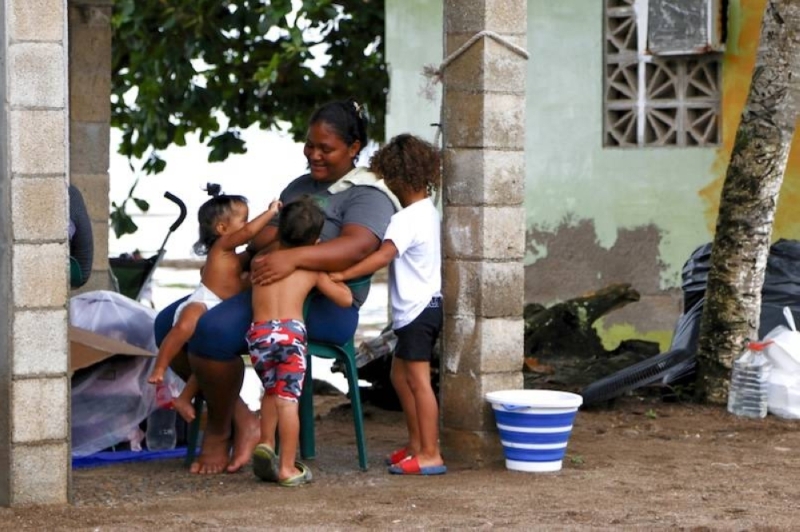
Migrants who once dreamed of reaching the United States are now forced to head back south after the arrival of President Donald Trump and stricter immigration policies. Many are stranded in Panama, caught between the Darién jungle barrier and the high costs of crossing the Caribbean Sea.
In Miramar, a small coastal town in Panama, dozens of migrants—mostly Venezuelans—wait for a chance to continue their journey to Colombia. Private boat rides to the border are out of reach for many, with fares reaching up to $260 per person.
“Here we’re stopped by the sea and the money. If it were a road, we’d already be in Colombia. But paying for three tickets for me and my children is impossible,” lamented Marielbis Eloina Campos, a 33-year-old Venezuelan traveling alone with her four young children after waiting a week in Miramar.
Campos left Brazil in 2023 and crossed the dangerous Darién jungle alone with her children, one carried on her back. The journey took six days, and she recalls one child nearly drowning while crossing a river. Despite the risks, she reached Mexico City, where she stayed over a year waiting for an asylum appointment via the CBP-One app. However, its cancellation under the Trump administration forced her to give up and return to Brazil.
“Mexico is torture for us migrants. I feared my children would be kidnapped,” said Campos, who pleaded for help to continue without being chased as if immigration authorities were “a mafia.”
Due to the high cost of private transport, Panama organized a humanitarian trip that transported 109 migrants from nine nationalities from Colón to the Colombian border aboard an official boat of the National Aeronaval Service (Senan). Another similar operation is expected soon.
Panama’s president, José Raúl Mulino, expressed concern about this reverse migration flow:
“I am worried that the number of people moving from north to south is increasing,” he said this month.
Central America
Honduras secures IDB loan to improve access and quality of education in vulnerable areas
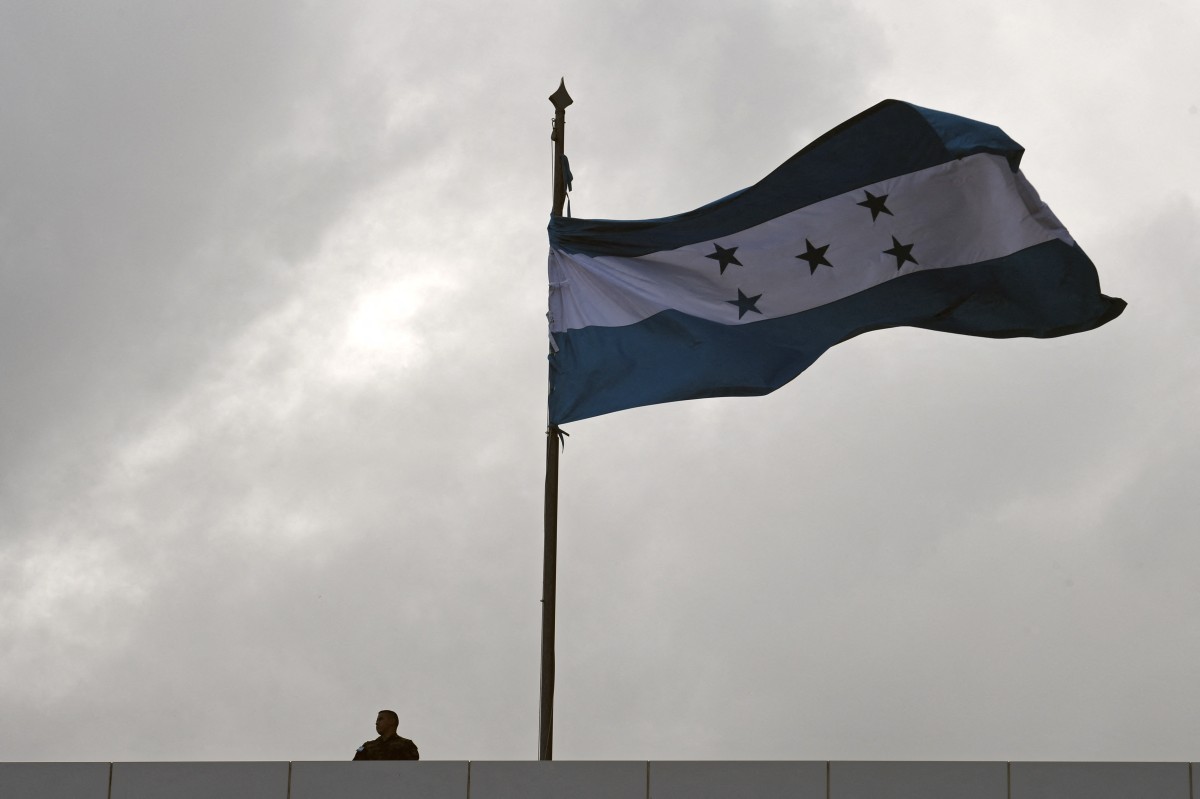
The Inter-American Development Bank (IDB) has approved a $55 million loan to support Honduras in improving access to and the quality of education, with a particular focus on rural areas and vulnerable communities, the multilateral organization announced on Friday.
The project will be implemented by the Honduran Ministry of Education and is expected to directly benefit more than 30,000 students and teachers in 33 prioritized municipalities, according to a press release from the IDB.
The initiative aims to strengthen both the demand and supply sides of education, while also improving the institutional capacity of the Honduran educational system.
Key components of the program include:
-
Scholarships for secondary students,
-
Tutoring programs in mathematics and Spanish,
-
The development of core skills such as reading, logical-mathematical thinking, socio-emotional abilities, and digital competencies.
The program also features strategies to prevent school dropout at the basic and secondary levels and to reintegrate students who have left the education system.
It will additionally promote school inclusion and retention of returned migrant children and adolescents through specialized teacher training and family support.
The funds will also finance:
-
School infrastructure improvements,
-
Provision of furniture and tech equipment,
-
Implementation of a contextualized curriculum for rural areas,
-
Strengthening of the national learning assessment system, the IDB explained.
-
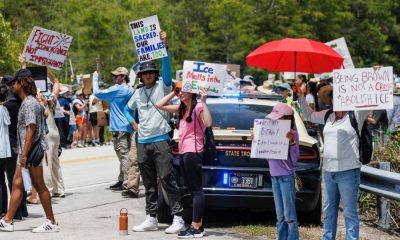
 International3 days ago
International3 days agoProtests erupt over Florida’s ‘Alligator Alcatraz’ migrant jail in the Everglades
-
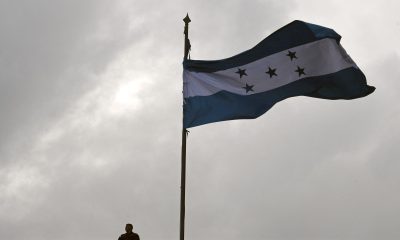
 Central America4 days ago
Central America4 days agoHonduras secures IDB loan to improve access and quality of education in vulnerable areas
-
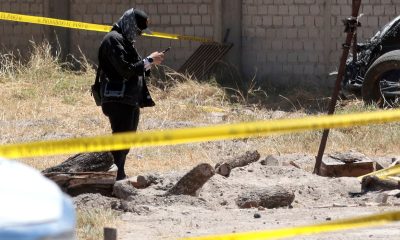
 Internacionales4 days ago
Internacionales4 days agoJalisco’s grim discovery: drug cartel mass grave found in construction site
-

 International4 days ago
International4 days agoU.S. targets families of sanctioned drug traffickers with new Visa restrictions
-
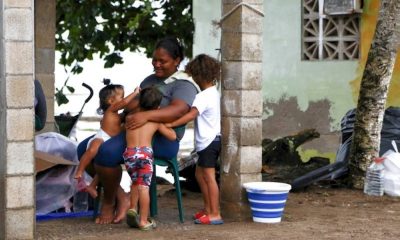
 Central America3 days ago
Central America3 days agoMigrants stranded in Panama amid US Policy crackdown and Darién gap barriers
-

 International2 days ago
International2 days agoTikTok sale advances as Trump reveals deal is in place
-
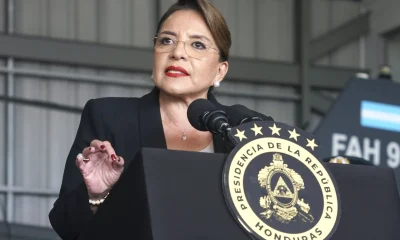
 Central America2 days ago
Central America2 days agoCastro to address FfD4 in Spain as Global Financial Reform takes center stage
-

 International1 day ago
International1 day agoTrump administration sues Los Angeles over sanctuary city policies
-
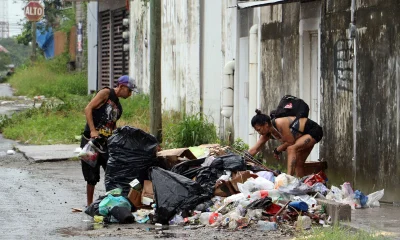
 International1 day ago
International1 day ago7 in 10 mexicans born poor stay poor, new report finds
-
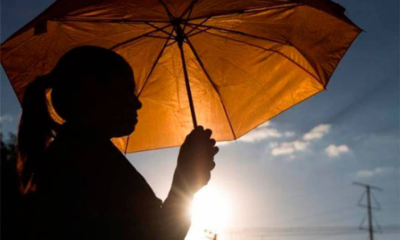
 International1 day ago
International1 day agoSpain hits record 46°C in June amid scorching heatwave
-
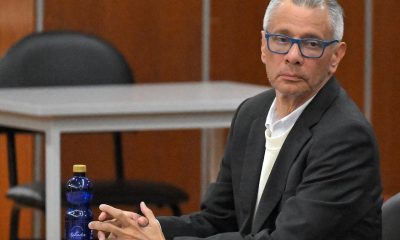
 International1 day ago
International1 day agoEcuador’s former VP Jorge Glas sentenced to 13 more years for corruption
-

 International7 hours ago
International7 hours agoThe White House insists that the United States remains in contact with Iran
-
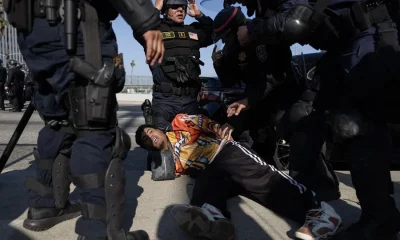
 International7 hours ago
International7 hours agoTrump sues Los Angeles for immigrant “sarture city” policies
-

 International6 hours ago
International6 hours agoThe US climate agency will lose access to key data for hurricane forecasting in July
-
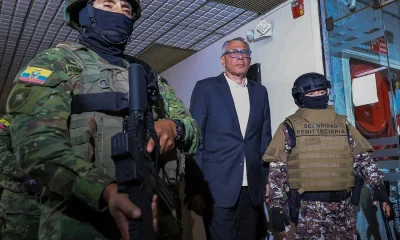
 International7 hours ago
International7 hours agoFormer Correísta vice president Jorge Glas, sentenced to 13 years in prison for embezzlement in Ecuador
-

 International6 hours ago
International6 hours agoThe Argentine justice declares Milei’s measure that limited the right to strike unconstitutional
-

 International7 hours ago
International7 hours agoAn investigation by the Trump Administration concludes that Harvard violated the rights of Jewish students
-

 International6 hours ago
International6 hours agoTrump will receive Netanyahu at the White House next week
-
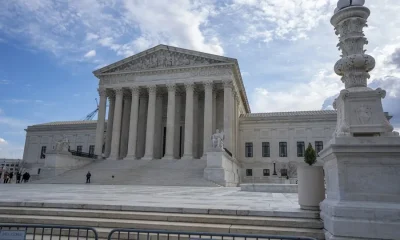
 International7 hours ago
International7 hours agoThe US Supreme Court will address the reduction of spending limits of parties in campaigns




















